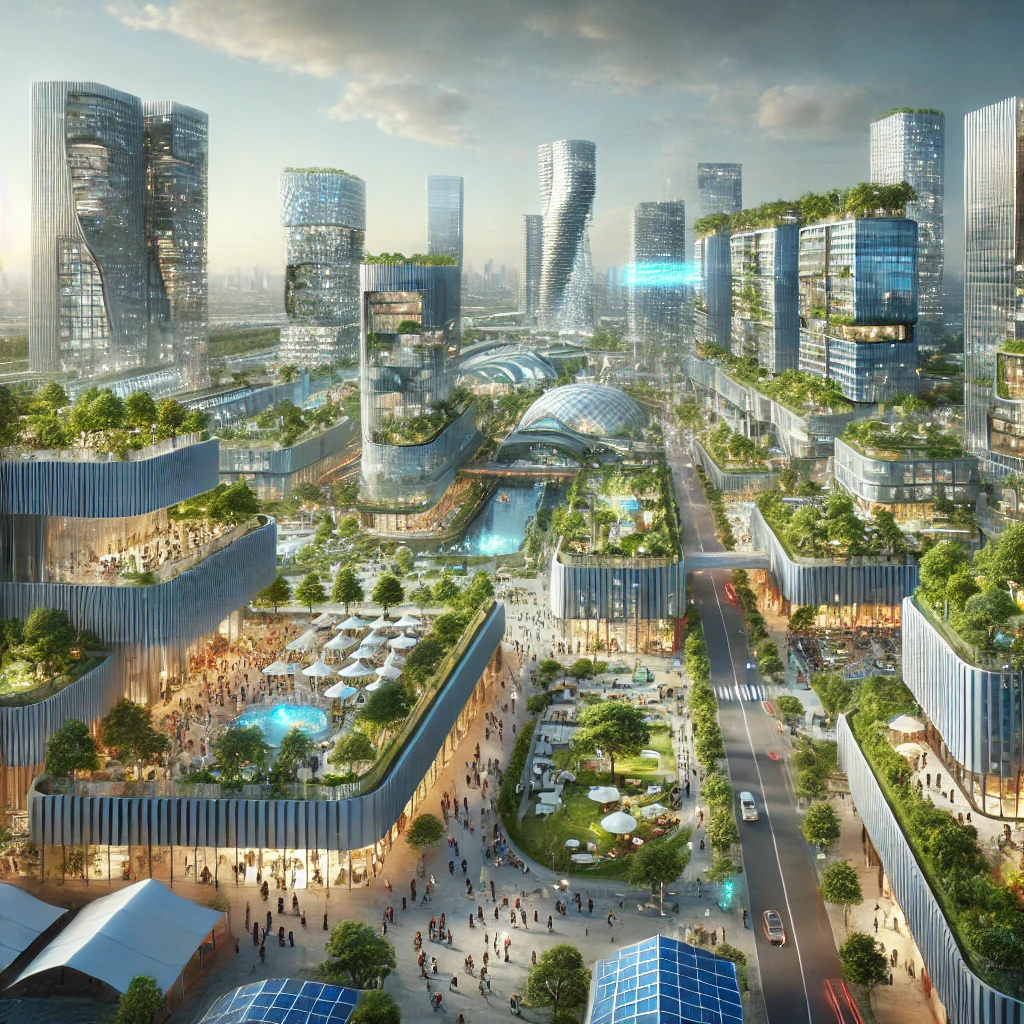Becoming a visionary real estate developer requires a combination of foresight, creativity, business acumen, and a deep understanding of the market and community needs. Here are key strategies to help you achieve this goal:
1. Cultivate a Big-Picture Mindset
- Think Beyond Today’s Trends: Visionary developers anticipate future market needs, technological shifts, and social changes. This could mean considering how sustainable energy, smart cities, or hybrid living spaces will shape future real estate.
- Innovate with Purpose: Innovate in ways that address long-term problems like urban sprawl, environmental degradation, or housing affordability. For example, focusing on green buildings or mixed-use developments that integrate work, live, and play spaces.
2. Understand Your Market Deeply
- Research Emerging Markets: Explore up-and-coming neighborhoods or cities with untapped potential. A good visionary developer identifies the next hot spot before it becomes obvious.
- Know Your Audience: Whether it’s young professionals, retirees, or families, tailor developments to their evolving lifestyles. For example, creating co-living spaces for digital nomads or senior communities with integrated healthcare facilities.
3. Embrace Sustainability
- Build for Future Generations: Visionary developers are committed to sustainable and eco-friendly projects. This could involve using renewable materials, energy-efficient systems, and green certifications like LEED.
- Focus on Resilience: With climate change and resource scarcity, buildings that can withstand natural disasters, reduce carbon footprints, or are self-sustaining will attract future buyers and tenants.
4. Leverage Technology and Innovation
- Smart Buildings: Incorporate cutting-edge technologies, like IoT devices, for energy management, security, and user convenience.
- Virtual Reality & AI: Use VR for design and walkthroughs or AI for predictive analytics in market research, property management, and investment strategies.
5. Build Strategic Partnerships
- Collaborate with Architects and Engineers: Working closely with innovative architects and engineers can lead to groundbreaking designs that stand out from conventional projects.
- Work with Local Communities: Engaging with the community can provide valuable insights and ensure that your developments meet local needs, reducing pushback.
6. Focus on Mixed-Use Developments
- Integrate Diverse Functions: Visionary developers often combine residential, retail, office, and leisure spaces into one development. This creates a sense of community and offers a lifestyle solution in one location.
- Maximize Land Efficiency: Create multi-purpose buildings that can serve different needs over time, allowing adaptability as market demands shift.
7. Master Financial Strategy
- Secure Long-Term Investment: Attract investors with a long-term vision for sustainable growth and profitability. Being able to secure funding for innovative ideas is key.
- Manage Risks: Real estate development has inherent risks. Mitigating these through solid planning, research, and legal protections will help you innovate confidently.
8. Stay Ahead of Trends
- Urbanization & Suburban Shift: With the pandemic influencing shifts in urban density, visionary developers stay agile, anticipating both urban regeneration and suburban growth.
- Cohousing & Community-Oriented Developments: Foster collaboration and social interaction within your projects to cater to a growing interest in community-oriented living.
- Affordable Housing: As cities grow, there will be increasing pressure to create affordable housing. Being a leader in this space can position you as both a successful developer and a community advocate.
9. Be a Storyteller
- Create a Vision and Narrative: Every great development has a compelling story. Visionary developers create environments that people want to be part of, integrating the history, culture, and aspirations of the area into the development.
- Market Your Vision: Learn to communicate your vision effectively to investors, clients, and the community, aligning stakeholders with your long-term goals.
10. Commit to Continuous Learning
- Stay Informed: Real estate development is an ever-evolving field, so staying up to date on new materials, construction techniques, regulations, and market trends is vital.
- Learn from Others: Study visionary developers and industry pioneers. Understand their strategies and apply them to your unique context.
By developing a strong sense of purpose, embracing innovation, and aligning your projects with future trends, you can create iconic developments that leave a lasting impact on the industry and the communities you serve.
